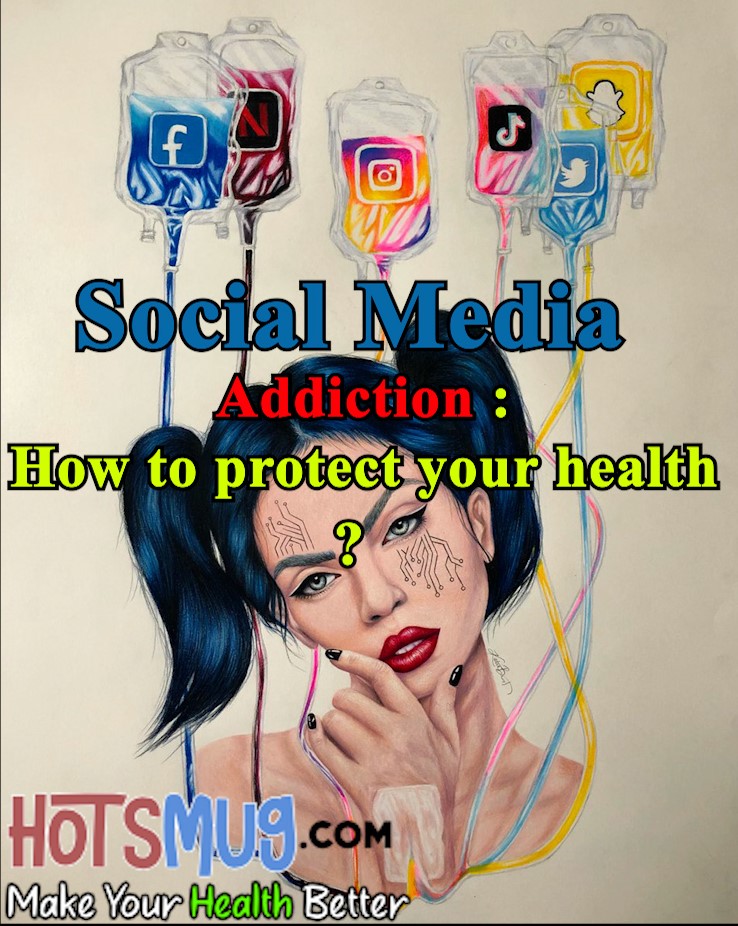In the early days of social media, checking in on your friends and loved ones through social platforms required you to physically log on to a computer. With only a few platforms available, it was easy to limit social media usage, using it to stay connected and update others on your personal and professional life, then logging off and stepping away without much of a second thought.
Today, in the United States, Canada, and around the world, social media use looks much different than it did just a few decades ago. Thanks to evolving technology, we can now access our social media accounts from anywhere. And with so many social media sites and platforms to subscribe to, we’re spending more time than ever inside our mental pod, something akin to The Matrix.
The result? An estimated 210 million people in the U.S. are suffering from social media addiction, and in some cases, self esteem issues. Many experts speculate that this number has increased exponentially since COVID-19. Social media became the obvious answer for how to stay connected when cut off from friends and loved ones when we were stuck inside during the pandemic. But spending too much time on social media has proven to have negative benefits when it comes to our mental health as a result.
In this article, we’ll explore the signs of social media addiction, how to tell if you’re a social media addict, and what steps to take in order to limit social media use so you can use social media in a healthy way.
What is social media addiction?
Whether you use social media to connect with friends and loved ones, watch videos, or simply “kill time,” the popularity of this pastime has increased significantly over the last decade.
This is especially the case in children and teenagers, as well as young to middle-aged adults.
So, how does a seemingly harmless hobby turn into an “addiction”?
Like other types of behavioral addictions, using social media can influence your brain in harmful ways. You may use social media compulsively and excessively. You can become so accustomed to scrolling through posts, images, and videos that it interferes with other areas of your life.
Some experts estimate up to 10 percent of people in the United States have social media addiction. However, due to how common social media use is in general, the number of those who have social media addiction may be higher.
Not everyone who uses social media will develop an addiction. Since this activity is becoming more accessible to more people, though, more people may develop an addiction to social media at some point in their lives.
While social media can seem like mindless and relaxing fun, it actually has a significant effect on your brain.
Whenever you log on to your favorite apps, dopamine signals in your brain increase. These neurotransmitters are associated with pleasure.
When you experience more dopamine after using social media, your brain identifies this activity as a rewarding one that you ought to repeat. Such a reaction may be more felt whenever you make a post of your own and gain positive feedback.
The positive feelings experienced during social media use are only temporary. The way your brain engages in this positive reinforcement is also seen in other addictions.
Thus, as the feel-good dopamine wears off, you’ll go back to the source (in this case, social media) for more.
In some cases, social media can be a welcome distraction if you’re isolated due to work or an illness. The more you engage, the more your brain will tell you that this is an activity that can help reduce loneliness (which may not necessarily be the case, actually).
How much is too much?
How do we know if you’re spending too much time on social media? Ask your friends or a family member for their opinion.
If you’re still unsure, try and walk away from using social medial for a few days.
Simeone says, “Remember, breaking any habit is a challenge. But if it feels really uncomfortable for you, that warrants attention.”
Recognizing A Social Media Addiction
Although many people habitually use social media, very few are genuinely addicted. To determine if someone is at risk of developing an addiction to social media, ask these 6 questions:
- Do they spend a lot of time thinking about social media or planning to use social media?
- Do they feel urges to use social media more and more?
- Do they use social media to forget about personal problems?
- Do they often try to reduce use of social media without success?
- Do they become restless or troubled if unable to use social media?
- Do they use social media so much that it has had a negative impact on their job or studies?
A “yes” to more than 3 of these questions may indicate the presence of a social media addiction.
A digital detox, a period of time during which someone significantly reduces the time spent using electronic devices such a smartphones or computers, could be a wise precaution. This can include simple steps, such as turning off sound notifications and only checking social media sites once an hour. Other changes can include having periods in the day where there is self-imposed non-screen time, such as during meal times, or leaving the phone in a separate room at night so as not to disturb sleep. This allows for a restored focus on social interaction in the physical world and reduces dependency on networking sites.
Social Media And Mental Health
Research has shown that there is an undeniable link between social media use, negative mental health, and low self-esteem. While social media platforms have their benefits, using them too frequently can make people feel increasingly unhappy and isolated. These negative emotional reactions are not only produced due to the social pressure of sharing things with others but also the comparison of material things and lifestyles that these sites promote.
On Instagram and Facebook, users see curated content: advertisements and posts that are specifically designed to appeal to users based on their interests. Users may see others posting about their great jobs, excellent partners, or beautiful homes and feel happy or inspired as a result. Others, however, may see these pictures and feel jealous, depressed, or even suicidal due to the fact that their own life is not as “perfect” as those that they see on Facebook or Instagram.
Recent studies have found that frequent social network users believe that other users are happier and more successful than they are, especially when they do not know them very well in real life. Social media facilitates an environment in which people are comparing their realistic offline selves to the flawless, filtered, and edited online versions of others, which can be detrimental to mental well-being and perception of self. Excessive social media use can not only cause unhappiness and a general dissatisfaction with life in users but also increase the risk of developing mental health issues such as anxiety and depression. Constantly comparing oneself to others can lead to feelings of self-consciousness or a need for perfectionism and order, which often manifests as social anxiety disorder.
Another aspect of social anxiety triggered by online media use is the fear of missing out (FOMO), the extreme fear of not being included or missing a social event. Users may see pictures of parties to which they were not invited, or glimpses of fun outings that they were unable to attend because of work or school obligations, and experience anxiety that no one misses them as a result — or fear that they will be forgotten since they’re not there. FOMO can take a toll on self-esteem and lead to compulsive checking of social media platforms to ensure that an individual isn’t missing out on anything, which can cause problems in the workplace and in the classroom. A study conducted by Harvard University found that social media has a significantly detrimental effect on the emotional well-being of chronic users and their lives, negatively impacting their real-life relationships and academic achievement.
How to break social media addiction
In 2018, people with internet access worldwide spent an average of 144 minutes on social media every day. Yet research indicates that limiting social media use to 30 minutes a day is optimal for mental health.
Abstinence is often recommended for treating drug or alcohol addiction, but for social media addiction, the ideal psychological outcome is controlled use of the internet. It’s not necessary to give up social media entirely, but it is important to have strategies for setting limits.
Lin Sternlicht, a licensed mental health counselor at Family Addiction Specialist, recommends that people who are concerned about social media addiction take the following steps:
- Go on a social media cleanse: Challenge yourself to go a certain time without checking social media, whether it’s for a few hours or an entire week. One 2019 study found that some students who went for five days without social media experienced a “sense of serenity,” although others were afraid of missing out.
- Delete apps, or disable notifications from social media: Most people check into social media mindlessly, so put a small barrier in the way by turning off notifications. If you don’t see a social media icon or alert every time you pick up your phone, you’re less likely to spend time there.
- Set limits and stick to them. Most phones and tablets allow you to see the time you’ve spent on certain apps. Set a limit for your time spent on social media and stick to it, or use an app that blocks social media after you’ve hit your limit. For teens, the American Academy of Pediatrics also recommends that social media use not interfere with activities like family meals, exercise, or “unplugged downtime.”
- Dedicate time to hobbies or activites. A hobby or new activity can help curb your desire to check in to social media. “The idea here is to fill up your free time with things that you enjoy that are good for you,” Sternlicht says. “Naturally you will find less time to be on social media and more time to be present in life, and hopefully even socialize in person instead of through a screen.”
Make plans for real connections
We often spend as much time investing in our online relationships as we do with the people we interact with on a face-to-face basis. To redress the balance, using your phone primarily as a connection tool to plan those meaningful face-to-face experiences, even if “face-to-face” under lockdown conditions means a video call through FaceTime or Zoom. “Face-to-face time is more powerful than anything you say over social media




